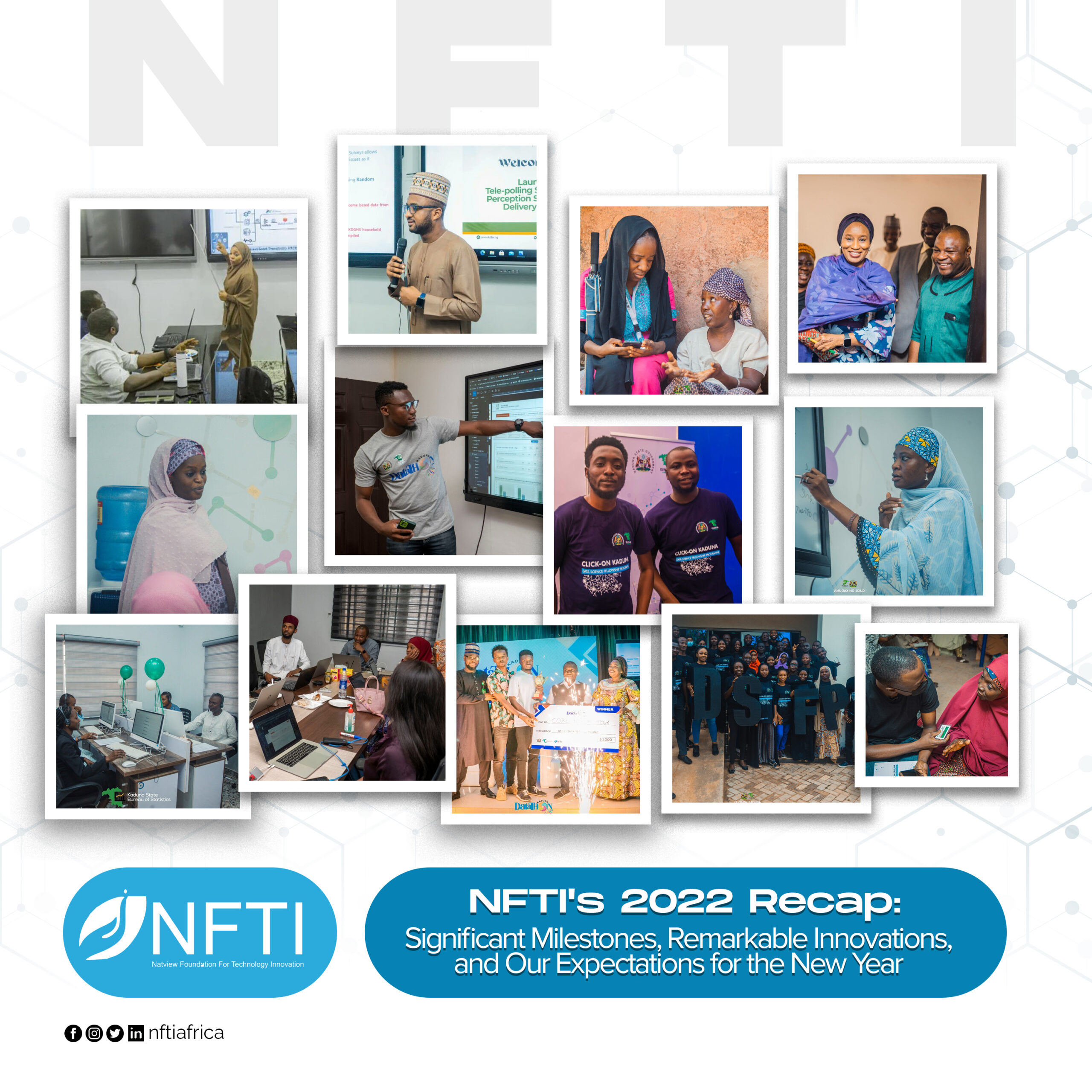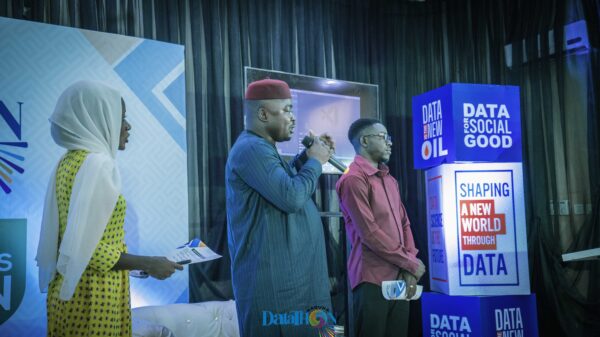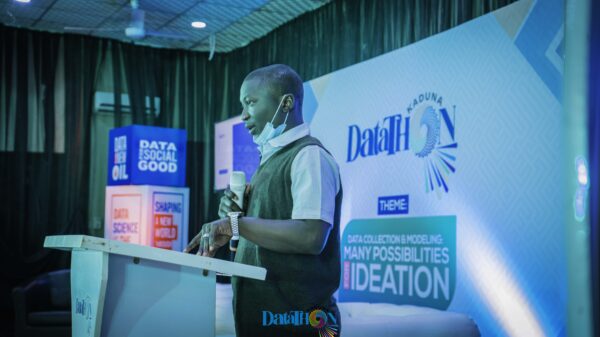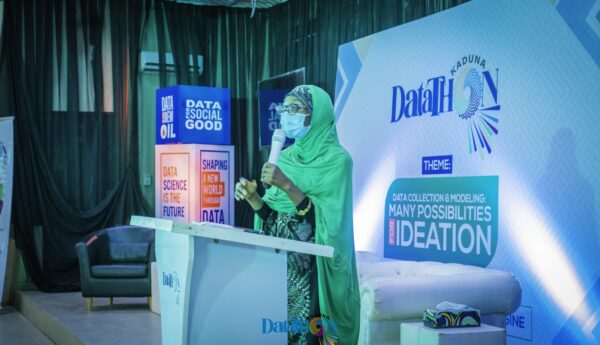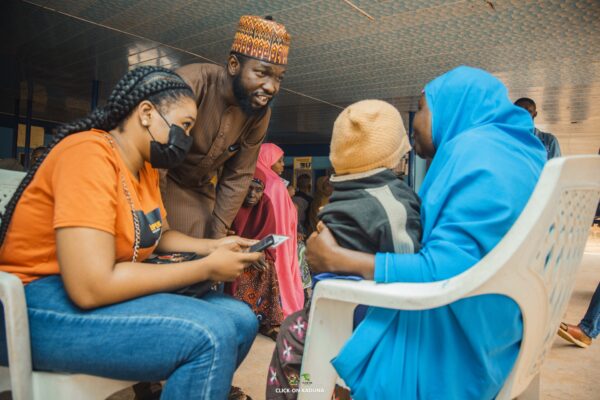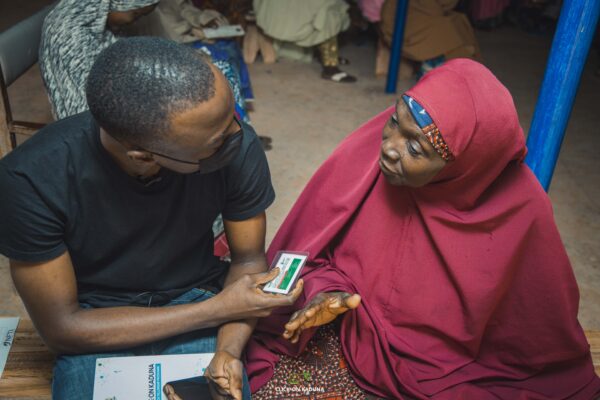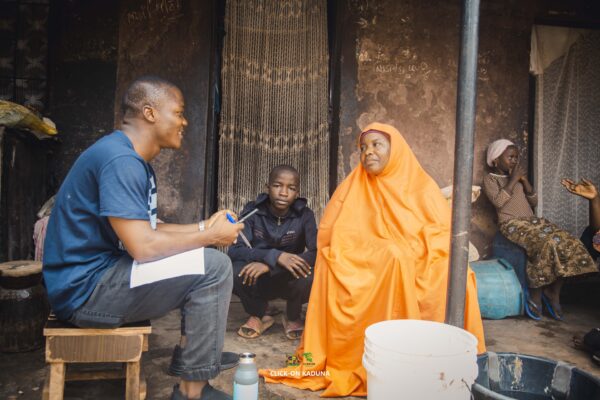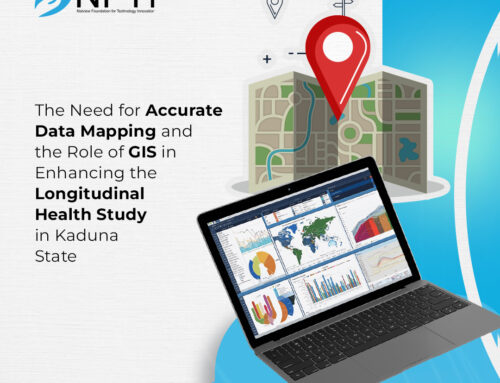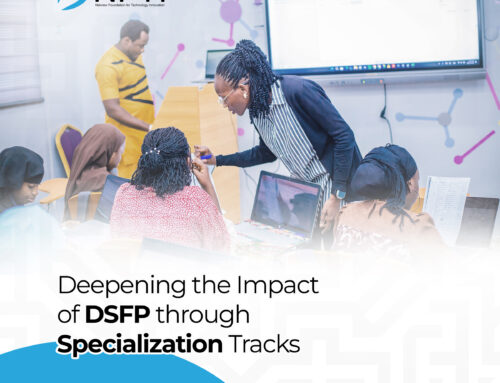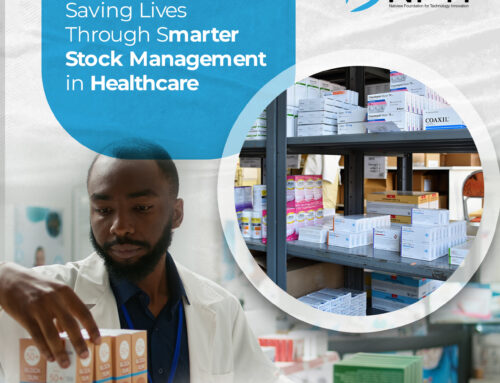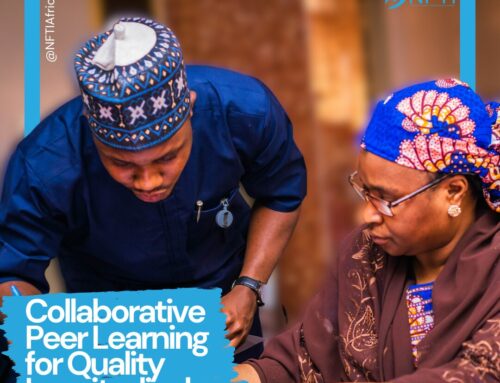Significant Milestones, Remarkable Innovations, and Our Expectations for the New Year
Did you blink? Because, just like that, 2022 is over. And for us at NFTI, it’s been another year of fostering the use of data science for social impact—our most impactful year yet.
No one needs to be reminded that the last three years have brought about lasting changes to just about every facet of life, the workplace culture of most organizations included. Since the pandemic, NFTI has built a workplace culture that transcends the boundaries of physical space, and every member of our organization has been actively involved in our workplace evolution, which helps us meet project goals all while enabling more robust partnership opportunities. We have built a culture of distributed leadership, which has fostered innovation at every level of the organization. 2022 was the year we consolidated the successes of the Kaduna data lab project (more on that shortly). Oh yes, we had quite a busy year as we executed several other projects, and we are pleased to share some of them with you. As we enter a new year, I am incredibly grateful to have worked alongside a diverse team of super-dedicated changemakers, all focused on our vision to use data for social good.
Now that we have welcomed the new year, let’s take a look at the key programmes that shaped our 2022.
The Data Lab Project
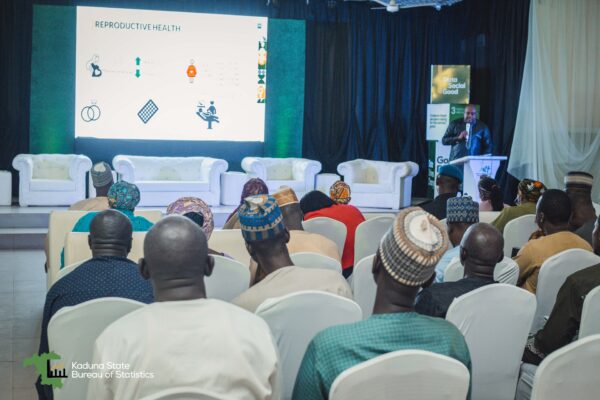
Prioritizing projects through evidence-based decision-making has been at the heart of governance reform efforts since the inception of the Kaduna data lab project. Since 2018, data has remained the lifeblood of policymaking in Kaduna State. As the project enters its closing year, the implementation partners have worked very hard in 2022 to consolidate its achievements. The Bill and Melinda Gates Foundation, through a $2 million grant, has been supporting the Kaduna Bureau of Statistics to develop a data management framework that shifts the bureau beyond a producer of data to a consumer and user of data as part of the Kaduna state data revolution plan. NFTI, as the implementation partner, works to provide technical and other forms of support to the bureau on the project.
2022 was a phenomenal year for the project. In June, the Bureau launched the 2020 Kaduna General Household Survey Report. The survey was the largest household survey ever organized by any state statistical agency in Nigeria. The report provides up-to-date data on health and demographic indicators, particularly maternal and child health, fertility, family planning, and nutrition, at the state, zonal, and local government levels to meet the monitoring and evaluation needs of the SDGs and support the achievement of the Kaduna State Development Plan. The KDGHS digital dashboard for interacting with datasets and leveraging the multi-source tool for evidence-based decision-making was designed by NFTI and also unveiled by the Deputy Governor of Kaduna State at the grand event.
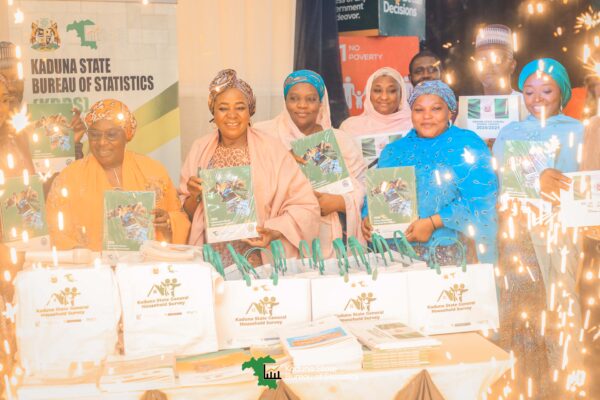
The operationalization of the Amina J. Mohammed SDGs Data Lab Call Center also kicked off in the same month. This is where the citizen perception surveys are conducted by telepolling. The survey provides an opportunity for the Bureau to track the sentiments of citizens on the accessibility of primary health care facilities in Kaduna state. The survey also provides information on other quality and delivery service issues relating to the primary health care facility as the first point of contact in engaging the health system.
With the goal of effectively sustaining the numerous gains of the Data Lab Project, NFTI designed capacity-building sessions (as we have always done since the project’s inception) for the members of the Bureau’s staff. In September, we trained senior-level officers of the Bureau on the rudiments and requirements of M&E and the understanding of individual KDBS departmental functions in tracking state-level results. It is our desire that the Amina J. Mohammed SDGs Data Lab, the custodian for everything data in Kaduna state, will continue to be a driving force for development planning, ensuring no one in the state is left behind.
Kaduna Datathon
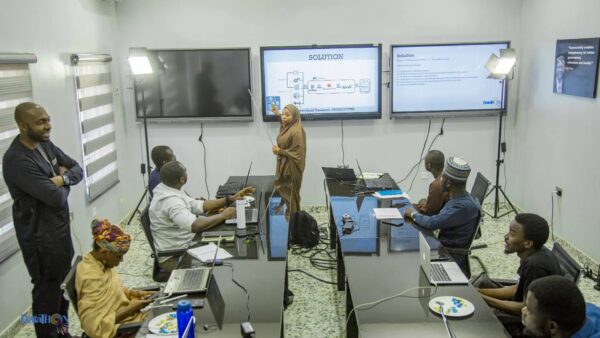
Back in March, the Kaduna state human capital development program, Click-On Kaduna, hosted its first-ever hackathon event, tagged the Kaduna Datathon. The Datathon brought together young data scientists from all over the country to co-create, brainstorm, and develop innovative solutions that address public sector use cases and model evidence-based data for decision-making. The Datathon was a follow-up activity to the first Click-On Kaduna Data Science Fellowship Programme, jointly implemented by the Kaduna Bureau of Statistics (KDBS) and Natview Foundation for Technology Innovation to identify and build the capacity of young people in data management to contribute to the policy development cycle and program planning.
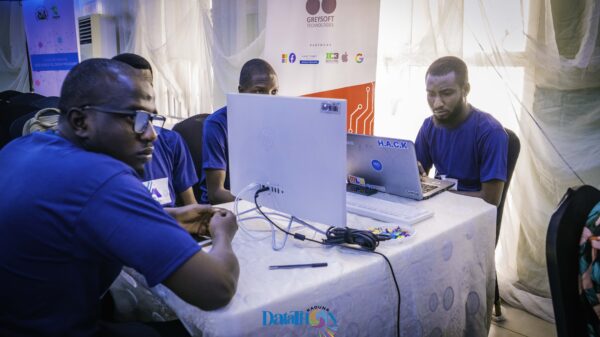
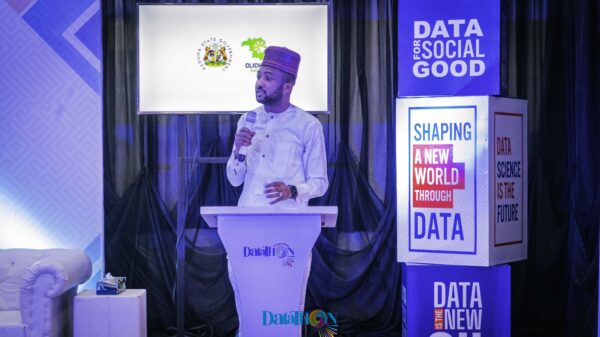
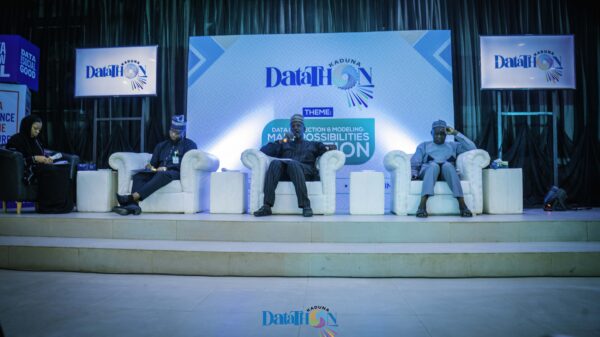
If you are unfamiliar with hackathons, they are quick sprints that bring people together to create innovative new ideas in a set amount of time. The Kaduna Datathon themed “Data Collection & Modeling, Many Possibilities for Ideation” saw young people come together to create exciting apps and portfolios around handling, collecting, cleaning, and parsing unstructured data into structured data for insights discovery and decision making.
From a total of 482 applications in the first round (the ideation stage), 10 semifinalists, consisting of 6 groups and 4 individuals, were selected by the judges to advance to the second round (the prototyping phase). The final of the Kaduna Datathon was nothing short of glamorous, as it was graced by several dignitaries, industry players, members of the tech community, and tech enthusiasts across the state. Team Core Health emerged as the winner of the $1,000 prize. The Jos-based team developed a web-based platform that shows the distribution of healthcare workers at the state and local government level and allows human resource administrators to update and ingest data from different sources.
Bringing different stakeholders from the public health sector and private tech hubs together to work for social good has been the most fulfilling part of our journey in the implementation of the Datathon. Leveraging partnerships were important to the successful implementation of the hackathon. We partnered with top players in Kaduna’s tech space to guarantee a fair selection and judging process. We also secured event sponsorships from corporate organizations that believed in our mission of impacting the lives and well-being of people through data science.

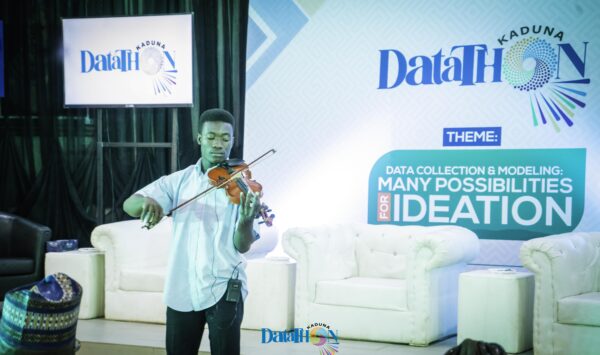
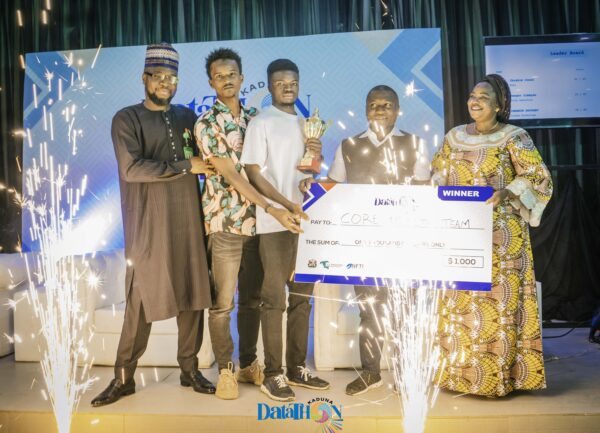
Read the 2022 Kaduna Datathon press release here.
DSFP 2.0
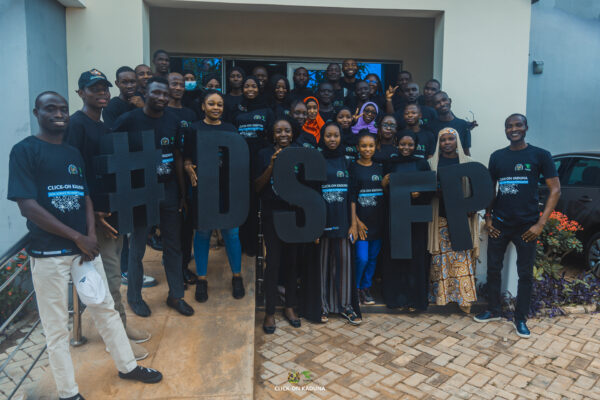
Our April 2022 started off with lots of excitement as we announced the launch of the 2022 Click-On Kaduna Data Science Fellowship Programme. The announcement took social media by surprise, as so many people never saw it coming. NFTI had successfully delivered on the first cohort of the programme in 2021, but there was no time to rest on our laurels. We were determined to make the 2022 cohort bigger and better. Applications for the second Data Science Fellowship Programme were launched on April 20, 2022, and the portal received over 5,000 applications from young people across the country. After four rigorous application stages, 40 young people got phone calls and email invites to join the programme.
The fellows have since completed their in-class training and are currently working closely with the Kaduna State Bureau of Statistics and other agencies in the state to impact the lives of citizens with their newly acquired skills.
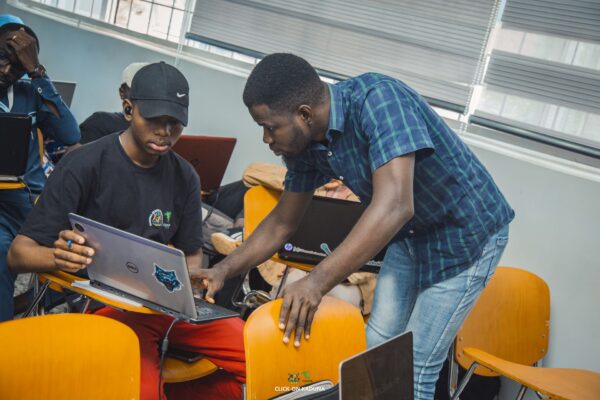
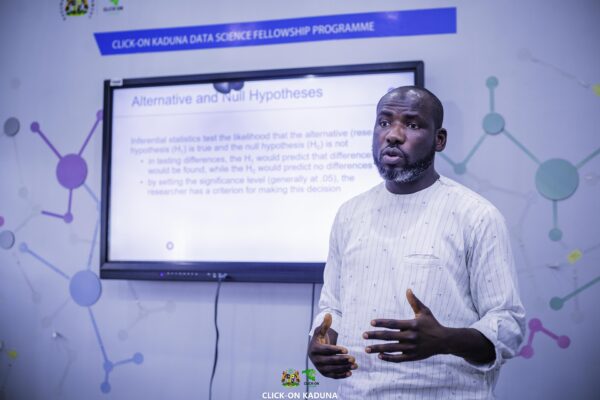
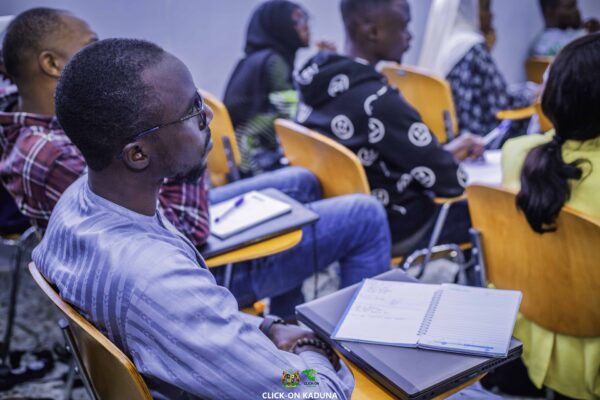
Fieldwork is an essential part of the Data Science Fellowship Programme. The DSFP 2.0 fieldwork activities have been designed to connect the knowledge that fellows gain in the class with real-world situations. On their first field activity, they went on the field to support the Kaduna State Contributory Health Management Authority (KADCHMA) as enumerators in a validation and enrolment exercise of pregnant women, children under 5, and elderly people in Kaduna State who receive free health care services from 254 Primary Health Care centers (PHCs), across the 255 wards of the state. The exercise provided the fellows with an opportunity to gain field experience, collect real-life data and support the state. The validation exercise will assist KADCHMA in strengthening the health management system of the state.
They also worked with the Kaduna State Bureau of Statistics as enumerators in the second phase of the ‘Out-of-School’ census. The purpose of the survey was to research the number of children who are within the school-going age bracket but are not enrolled in a school. This is needed for credible planning toward the reduction of out-of-school children in the state. The census, which was conducted in 15 out of the 23 LGAs of Kaduna State, gave the fellows a chance to gain practical experience on ways to collect accurate data.
This is also a great time to talk about our 2021 fellowship graduates. Many of them have shared their amazing stories with us, and these stories give us something to be grateful for as we move forward with our commitment to building the next generation of data scientists. Please feel free to visit our blog to check out these success stories.
The ISS
The Integrated Supportive Supervision platform integrates several checklists used by health partners when conducting integrative supportive supervision and makes this data easily accessible. It encourages the delivery of quality service for optimal outcomes through better communication, team spirit to resolve identified problems, and mentoring to motivate health workers to supervise, monitor, and improve their individual and collective performance. The Kaduna state government implemented the ISS to monitor and evaluate the state’s primary and secondary healthcare facilities. The exercise takes place quarterly and weekly over the course of a year. The Kaduna state Ministry of Health works with development partners and not-for-profits to assist them in carrying out the Integrated Supportive Supervision (ISS) to help improve the health care services in the state by monitoring and evaluating the facilities, staff members, buildings, and condition of their equipment and ensuring that they meet the minimum service package requirements. They accomplish this through surveys and analysis among various NGOs, which include NFTI, Solina, and eHealth for Everyone.
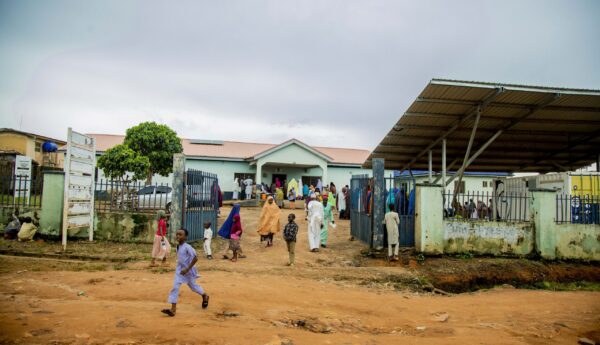
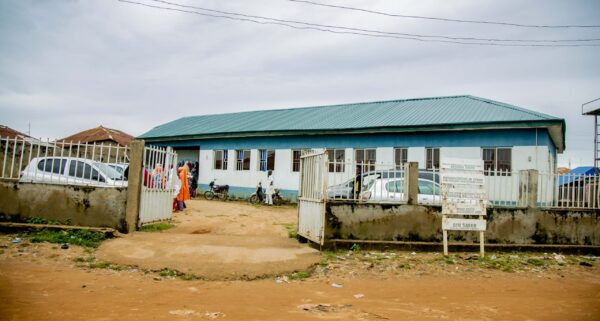
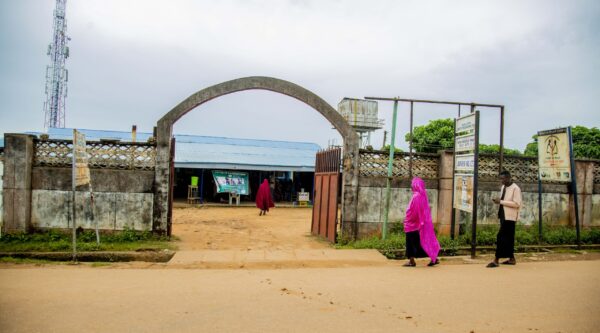
NFTI assists in digitizing the questionnaires used in collecting data as well as analyzing the data collected by the Ministry of Health employees and the State Primary Health Care Board (SPHCB). We also monitor the data collected, ensuring that the field workers are doing their jobs and not collecting false data, using a set of standard operating procedures, which is a set of guidelines on how the data should be collected. This format examines factors such ‘as the average amount of time it takes to collect data and the number of staff strengths for a given facility: Public health facilities, for example, have a minimum of zero doctors and a maximum of one, while the number of doctors in private health facilities varies.
Following a series of analyses, NFTI visualizes this data on a dashboard, then deploys it on the ISS Web App. The best-ranking facilities are green, the average-ranking facilities are orange, and the poor-working facilities are red. It makes it easier to track the performance of those facilities, and stakeholders can now determine which facilities require support based on priority. The ISS also informs the government about which facilities should be licensed and certified.
Kaduna is the first state in Nigeria to digitalize the ISS process, which eliminates the need to sift through stacks of paper to determine which healthcare facilities are performing well or not.
Our Partnership with Oxygen Hub
In early October, we announced our partnership with Oxygen Hub to assess the medical oxygen landscape across five Nigerian states. The market research and assessment seek to understand the market dynamics for oxygen demand and supply in five key states: Kano, Anambra, Delta, Lagos, and Abuja, which represent the regional hubs of Nigeria and key urban commercialized centers for the use of oxygen therapy across secondary and tertiary healthcare delivery in the country.
The market discovery for this assignment is geared towards having evidence-based data to reveal the gaps in the availability and demand of medical oxygen and market opportunities to fill unmet market needs.
Honors
It’s amazing to see our impact story spread around the continent. Last December, we were nominated as Africa’s policy champion by the Africa Start-Up Ecosystem Builders Summit and Awards in Johannesburg, South Africa. We emerged as co-awardees for the HeForShe and SheForShe Champions of Africa, a testament to our great work to ensure inclusivity in our communities, workplaces, and programmes.
What to expect in 2023
As we celebrate our accomplishments in 2022 and look ahead to life-impacting innovations in 2023, NFTI will continue to solve social policy issues in the health, education, and agricultural sectors using data science, artificial intelligence, and machine learning. We believe that 2023 is the year where we expand our impact further across Africa. In the fourth quarter of 2022, NFTI worked with the technical developer for Institut National de la Statistique du Niger (INS) from the Republic of Niger to conceptualize the implementation of sustainable and refreshed data pipelines for the Multi Data Source Platform (MSP) of the country.
Top technology trends that will shape 2023 include the continued growth of cloud computing and data analytics, increased use of artificial intelligence and machine learning, and further expansion of the Internet of Things (IoT), and we believe that we have all it takes to lead at the forefront of these innovations.
We would like to extend our gratitude to all our partners who have accompanied us on this journey. Your support has given us the opportunity to grow and significantly improve the lives of the communities we serve.
We cannot wait to do 2023 with you!

